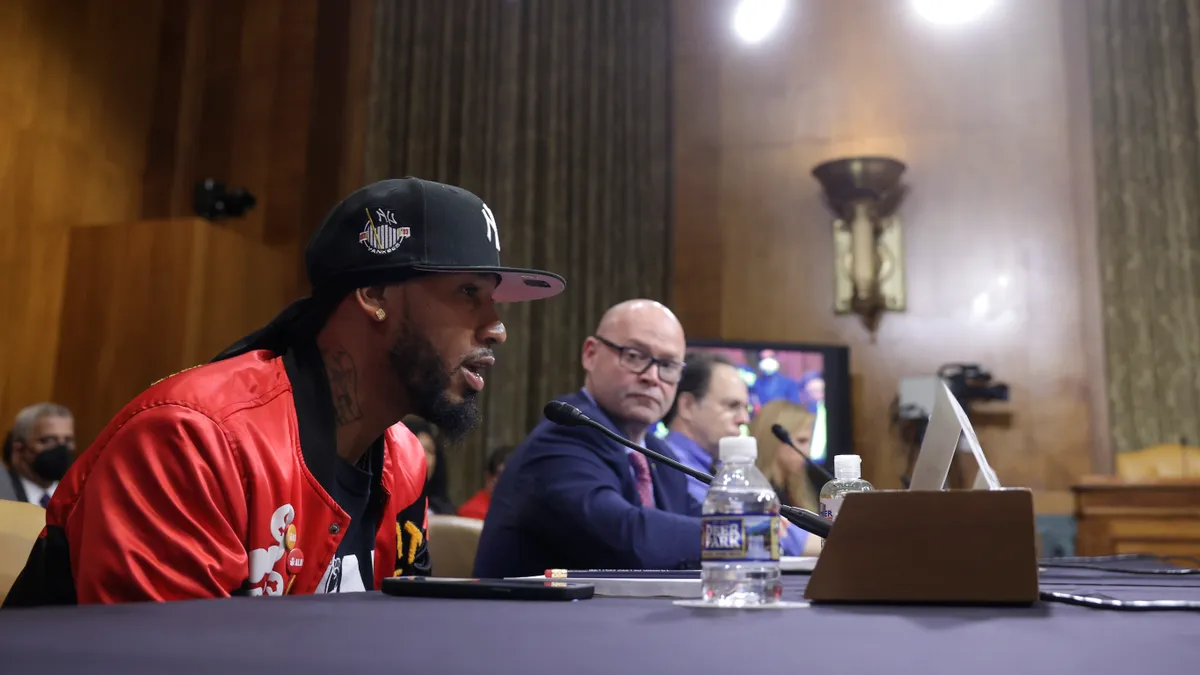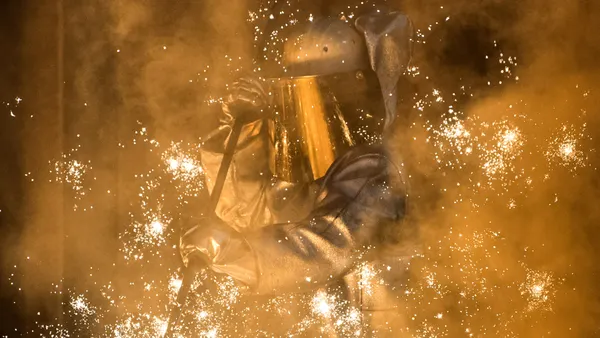Dive Brief:
- The International Brotherhood of Teamsters’ Solid Waste and Recycling Division sees the potential to expand its ranks of approximately 30,000 members, driven in part by new leadership from General President Sean O’Brien, according to a recent update call.
- "Industry consolidation raises concerns, but also can offer more opportunities to organize and grow within this waste industry. This is an industry that cannot be outsourced. We are going to organize in areas where we have density and can use our power to show the union difference,” said O’Brien during the call.
- Division Director Chuck Stiles said this week the union will increasingly focus on organizing more workers in areas such as organics processing and environmental services, in addition to existing efforts in solid waste, recycling and medical waste or document shredding.
Dive Insight:
The Teamsters organization has a long and complex history with the waste industry, but as unions in multiple sectors are seeing new momentum this longstanding group has been touting its own string of successful organizing drives and contract negotiations.
The division has 240 local unions and 427 bargaining units, according to O’Brien. The largest companies where it represents workers include Republic Services, WM, Recology, Waste Connections, GFL Environmental and Stericycle. According to Stiles, the waste division has seen “much better contracts” recently in terms of wages and benefits, as industry employers struggle to maintain their workforces following years of pandemic turbulence.
Over the past year, the division has seen high-profile strikes (or the threat thereof) lead to more successful contract outcomes in areas such as California and Nevada. O’Brien, who is often described as having a more “militant” and “progressive” approach according to Stiles, took over the organization in March after it was run by James P. Hoffa for more than 20 years. O’Brien previously ran Local 25 (which led an unsuccessful 2019 strike against Republic in Massachusetts) and has quickly gained national prominence for his comments on major companies such as Amazon and UPS.
In a Monday interview, Stiles said the two have been meeting with waste executives recently to convey how this new approach by the international organization will apply to relations with the industry. He feels the presence of “a new sheriff in town” has likely been affecting negotiations in the union’s favor and inspiring more workers to get involved.
"I think it's reverberated from the top throughout the rank and file — and that's in every craft, not just waste — since Sean has taken over."
While a review of National Labor Relations Board data shows the union hasn’t prevailed in every recent organizing effort, it’s reported wins at locations such as Endurance Environmental Solutions in Georgia along with a number of contract agreements for waste workers around the country. Recent contracts on the West Coast, particularly in the San Francisco Bay Area, have been described by the Teamsters as among the country’s most lucrative.
Stiles recently told workers that could be a model for their own contracts, urging a focus on growing the ranks in areas that already have high membership density. Examples include Atlanta; San Diego; Memphis, Tennessee; and Akron, Cleveland and Dayton in Ohio.
He noted industry consolidation can sometimes lead to a loss of members (like when WM bought Advanced Disposal Services), though it can also have the opposite effects when union companies purchase non-union haulers. One Republic acquisition in Massachusetts may yield more than 100 new members this fall.
Another recent trend Stiles feels may work in the union’s favor is the spotlight on waste employees being “essential workers” during the start of the pandemic. He believes this has motivated employees to leverage their value in a tight labor market by pushing for higher pay and better benefits.
During the latest round of earnings calls, industry executives broadly said they view this labor environment as here to stay.
“I'd say on the non-union side and on the union side, put simply, our employees deserve pay raises. I mean they're operating and living in a high inflationary environment. If we have very high expectations on their daily performance, especially around safety and risk, then they deserve to be paid and rewarded,” said Waste Connections CEO Worthing Jackman, during an Aug. 3 call, in response to a question on the company’s union exposure.
While the Teamsters are seeing growth, and remain the largest union in the industry, a review of overall North American unionization rates at public companies doesn’t show any major shifts in recent years. At the end of 2021, unionization rates were 24% at Republic, 20% at WM, 15% at Waste Connections, 12% at GFL and 4.6% at Stericycle.











